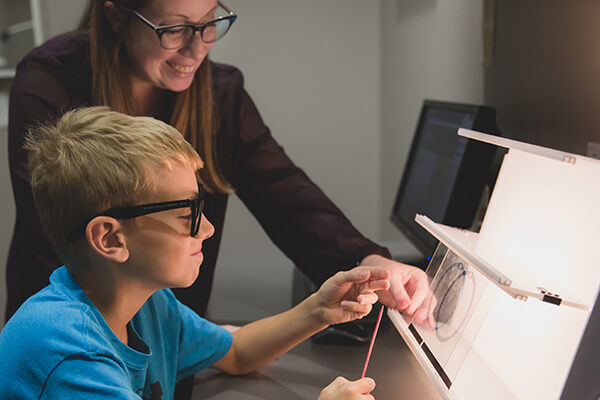

Only a Binocular Vision Evaluation will diagnose a functional vision problem. Good vision requires your eyesight, visual pathways, and brain to all work together. When a function vision problem is diagnosed a Vision Therapy Program may be prescribed to help improve the visual skills that are affected by the functional vision problem.
Patients who may require vision therapy generally experience the following challenges:

The only way to ensure that all the essential visual skills are working correctly is through a Binocular Vision Evaluation. This evaluation is distinctly different than typical vision screenings, which only test for clarity and are not offered by schools or most optometrists.
The evaluation takes 60-90 minutes to complete. Once the evaluation is completed, the doctor will review the results of the testing and create an individualized treatment plan. Not Every Patient Requires Vision Therapy.
An individualized vision therapy program is critical for effective treatment for vision problems. The recommended program will combine both in office and home-based vision therapy that address a patient’s specific visual problems, delivers the most efficient results.

Activities are used to build or improve visual skills. Here patients perform certain visual activities and procedures that will help correct the visual functioning of their eyes.
For best and most efficient progress, regular visits to the office are required. There are many important visual activities done in the office with a vision therapist that cannot be done at home.
We will be building your visual-motor skills and endurance through the use of specialized computer and optical devices. Therapy programs can range in length from one session to 2-3 years. Most programs last between 6-9 months.
According to the American Optometric Association,
1 in 4 children has an undetected vision problem that affects their ability to learn.
This is because typical school vision screenings don’t test for skills such as ‘tracking’ and ‘focusing’.